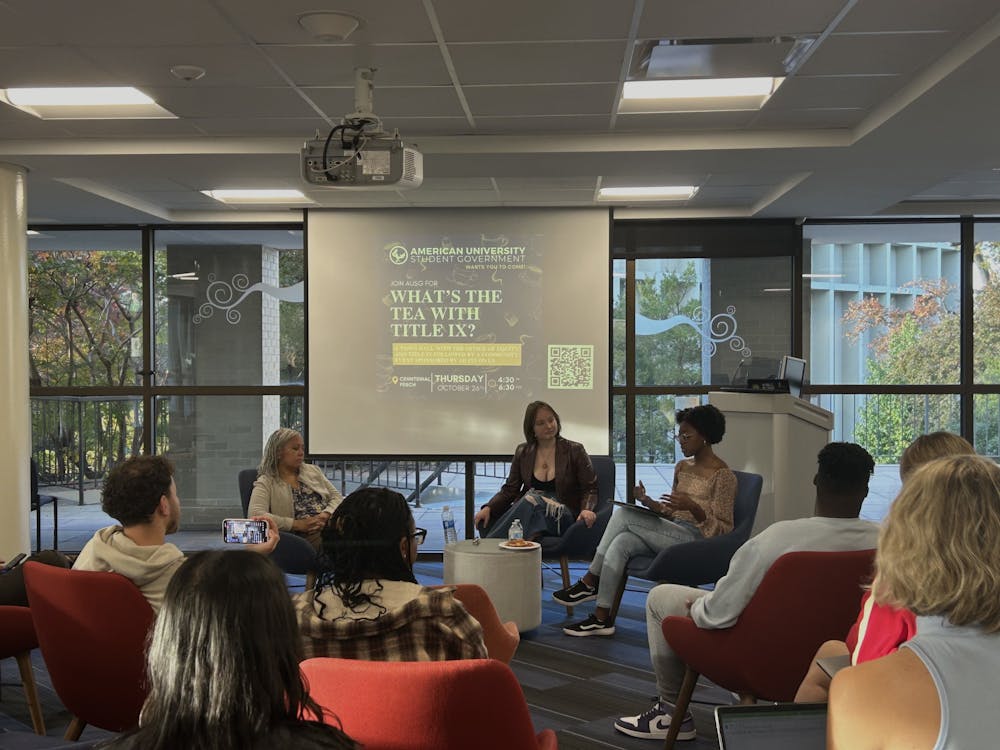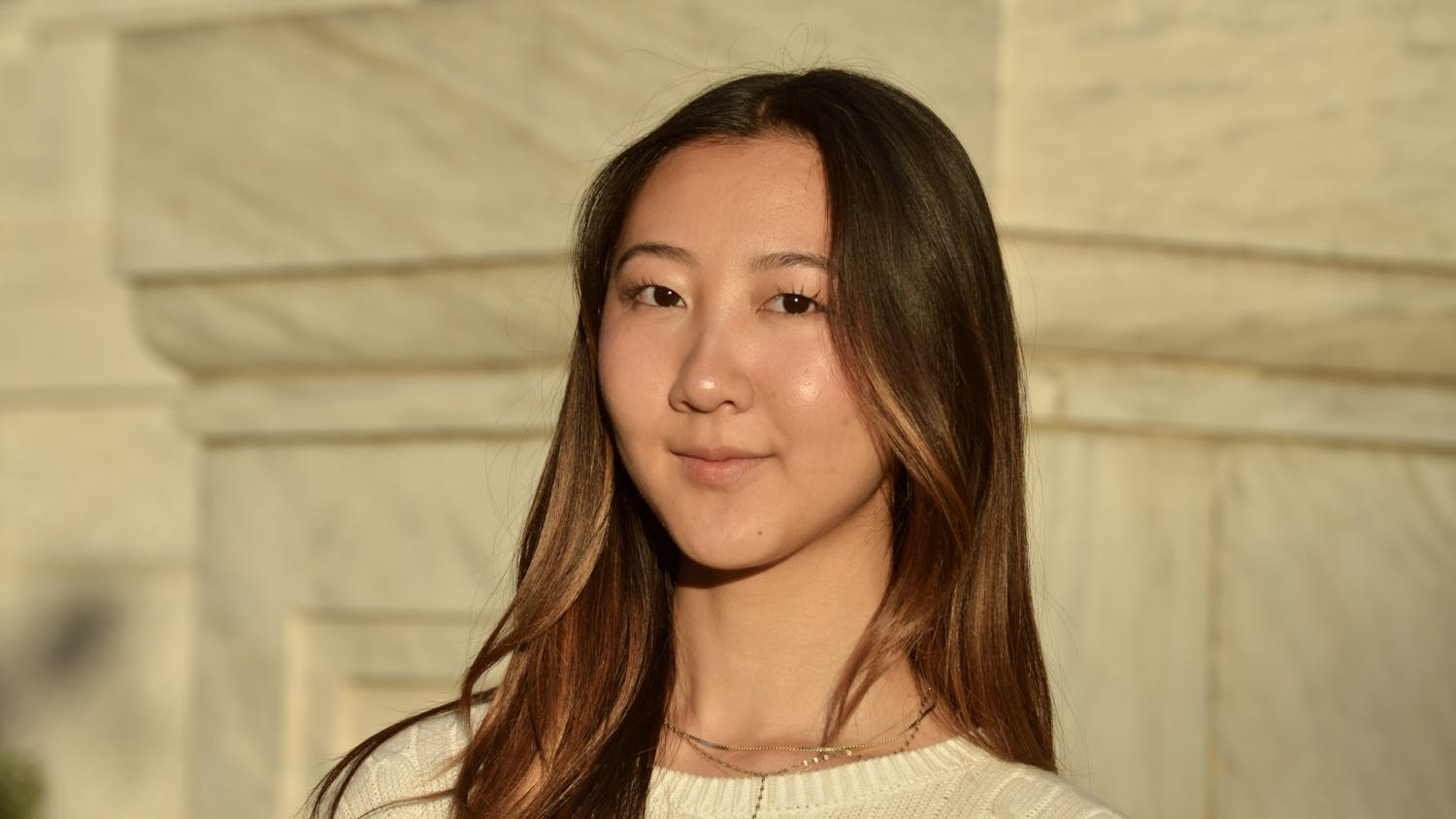American University students were given a rare opportunity to ask questions about the Office of Equity and Title IX’s operations on Oct. 26 in the latest installment of the Student Government’s “What’s the Tea” series.
SG hosted the event in conjunction with the Office of Equity and Title IX.
Leslie Annexstein, the assistant vice president for equity and Title IX, kicked off the event by defining the extent to which Title IX can help students under AU’s equity policies and D.C.’s human rights laws.
“We want to provide supportive measures, and in fact, we spend a lot of time in promoting supportive measures,” Annexstein said at the event. “We are guided by D.C.’s human rights laws, and I want to reassure you that American University has continued to provide protections for your rights.”
The floor was then opened for students to submit anonymous questions to Annexstein and her colleagues. Many students began by questioning the effectiveness of the Office’s efforts in supporting survivors of sexual assault.
One student asked if the Office could remove accused assaulters from living on the same residence hall floor as a survivor. According to Annexstein, the Office cannot relocate students until they have been found guilty by an appointed panel of trained staff members at a scheduled hearing. Annexstein said removing or relocating a student from a residence hall without also expelling or suspending that student is not within the Office’s jurisdiction.
“When someone makes an accusation about someone else, then that person remains on the floor,” Annexstein said. “That is because the federal government has been very hard in telling us that this is building adverse action, and the University is not permitted to do that.”
Interim Assistant Vice President of Student Affairs Jeffrey Brown said any sanctions taken against someone found to have violated Title IX require approval from himself and a larger panel group. He added that there is no way for an accused student to be relocated to another residence hall, but if found guilty that student can be suspended or dismissed from the University entirely.
“My job is to make sure we’re being consistent and review what the recommendation of the panelists and sanctions,” Brown said. “The level of sanction that I put out there can be appealed and that appeal then goes to the vice president or student panels. So there’s several checks and balances that happen.”
Students continued to question both the University and the Title IX Office’s urgency to help students, referencing a protest that took place last year following an assault in Leonard Hall. One student asked how staff plan to regain the trust of students who feel “betrayed and let down by the Office.”
“My job is to ensure that we are doing what we are required to do,” Annexstein said. “I think forums like this and not making assumptions about what people are doing and about what people are working on in the Office is important.”
SG Director of Security Denia Smith said that SG is committed to ensuring that the University is at the forefront of addressing Title IX issues on college campuses. Smith cited the recent passage of a survivors’ bill of rights in the Undergraduate Senate, which was sent to the Office of Equity and Title IX.
“It lists the rights of survivors such as a right to an ethical trial or the right to privacy as you go through this process and to have respect and dignity as a survivor and as a student on our campus,” Smith said.
Vice President of Student Affairs Raymond Ou expressed support for the bill at the forum.
“The survivors’ bill of rights communicates in absolutely clear terms a school’s commitment to survivors knowing what their rights are,” Ou said. “It neutralizes any chilling impact on reporting.”
Ou said AU plans to implement the survivors’ bill of rights into campus resources by January, but also stressed how current peer-led efforts such as Empower AU help educate students and increase awareness of sexual violence.
“I just finished meeting with the two groups of peer health educators who had the privilege of doing some of the [Empower AU] sessions and they found the sessions to be very meaningful,” Ou said. “They’ve also received feedback from students who told them that they were very reassured that they weren’t hearing a training from someone other than a peer and they found that to be very powerful.”
Ou said the Office of Student Affairs and the Office of Equity and Title IX hope to build a stronger relationship with students to create an environment where they feel heard.
“We hope to earn your trust and take action to be that type of place,” Ou said. “That's going to take some time, but I hope tonight is the first few steps we can take.”
This article has been edited by Tyler Davis, Zoe Bell, Jordan Young and Abigail Pritchard. Copy editing done by Isabelle Kravis and Daniel Carson.





